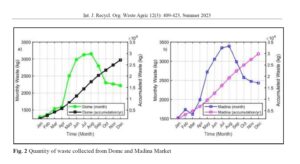Purpose This paper focuses on monitoring the behavior of five different types of waste and humus during composting to see the impact of the nature of the substrate on the process and the quality of mature compost. Method Green waste, coffee waste, household waste (Fraction of the household waste which having dimensions smaller than 8 […]
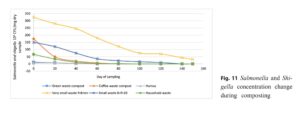
Purpose This study aims to characterize the compost produced under low input conditions in thirty days of composting from food wastes applying the hot composting Berkeley method (HCBM) by 13C NMR CP/MAS techniques combined with evaluation of chemometric, physical and chemical parameters. Method The composting process from food waste was carried out following the recommendations […]
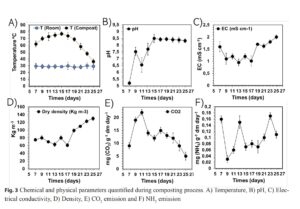
Purpose The role of cocoa pod husk waste in soil cadmium contamination has been largely overlooked. Hence, this study aims to provide a strategy for the management of cocoa pod husk waste when representing a pollution menace for cocoa plantations. Method Cocoa pod husks waste was subjected to composting and pyrolysis for decreasing the heavy […]
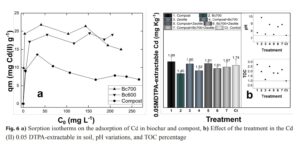
Purpose Recycling of food waste fraction of municipal solid waste into compost for use in agriculture is seen as an effective environmentally–friendly option. In developing countries, however, there are few commercial composting facilities producing composts whose use in agriculture is low, mainly due to their low nutrient content compared to chemical fertilizers. Method This study […]
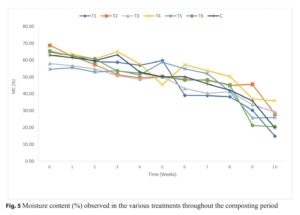
Purpose: Vegetable waste (VW) composting was assessed using a passive aerated pilot-scale composter at Kundasang, Sabah. The passive aerated composting system proposed at Kundasang Community Composting Site (KCCS) was analyzed for its techno-economic impact. Method: The composting performance (temperature, organic matter loss, moisture content, pH value, electrical conductivity, and nutrient value) of 500 ± 2 […]
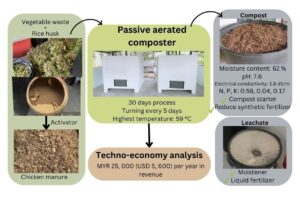
Purpose The composting of manure is the common practice for the feedlots of cattle, but emission of gasses during composting was poorly understood. So, there is need to enhance nutrient contents in composting material, reduce odor and other impurities by various amendment in composting material. This study was planned to find best composting condition for quality […]
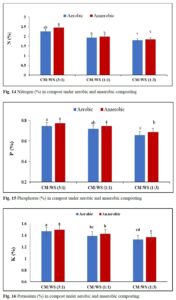
Purpose: In this study, we aim to investigate the suitability of five samples of compost extracted at various concentrations by testing for their phytotoxic response on Lactuca sativa L. We analyze relevant parameters with regards to the quality of the compost. By doing this, we hope to contribute to the attainability of clean, high-value organic […]

Purpose: Clean and efficient alternatives for sustainable treatment of pig farming wastes are a priority in suburban areas in Forest Reserves of High Andean ecosystems. Among these technologies are Bokashi Fermentation and composting with added microorganisms (bioaugmentation) or nutrients (biostimulation) as biological activators. Method: In a Colombian rural area located at 3160 m.a.s.l., focused on […]
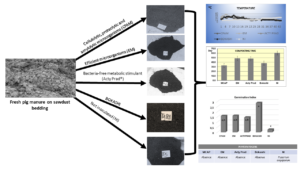
Purpose: This work was aimed to exploit the technique of design of experiments to evaluate the olive mill waste cake residue obtained after oil extraction while searching for an adequate composition of the initial substrate mixtures (RPM, DMOV, FV and EB for humidification), in addition to validate it experimentally. Method: To this end, a mixture […]
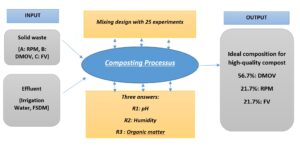
Purpose Market crop waste (MCW) contributes significantly to the quantity of municipal solid waste generated in sub-Saharan Africa. These wastes, however, contain high levels of plant nutrients which can be harnessed through composting to improve soil organic matter and nutrient status of impoverished tropical soils. Method In this work, annual MCWs from two urban markets […]
